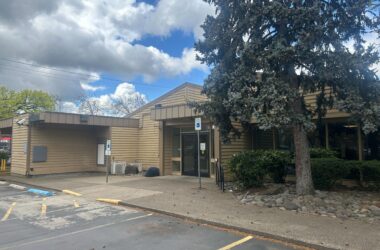Candidate overview: Nick Skelton (Zone 2), Rich Cunningham (Zone 2), Zach Mulholland (Zone 2), Bob Baldwin (Zone 6 – At Large), and Kyle Reallon (Zone 7 – At Large) did not respond to requests for participation. Denise Diamond (Zone 1), declined participation.
Community colleges across the country have been facing declining enrollment amid pandemic recovery, its economic fallout, and a population shift within key demographics. Now, community colleges are facing staffing and budget-related issues. What can the board do to ensure stability at LCC?
KEVIN ALLTUCKER, Zone 6: LCC, like most community colleges, experienced a one-two punch in the last five years. The first was the economic boom time leading up to 2020 which resulted in a lot of people choosing to work instead of going to school. Then COVID happened and shut down the economy and closed most campuses. The result was a double whammy on LCC enrollment. Today, LCC has about half the number of students it had 10 years ago. The board’s priority should be to increase enrollment, and to make sure students receive the support they need to be successful.
LISA FRAGALA, Zone 7, incumbent: Higher education is experiencing a changing landscape and shifting student expectations. In order to ensure stability at the college we need to be strategic and adopt a transformational mindset. LCC has already implemented new recruitment strategies that have increased enrollment. We need to continue these efforts and make additional investments in retention strategies. How schools teach has also changed due to the Pandemic. Students want access to remote, in-person and hybrid instruction. LCC needs to strategically plan for ensuring it meets the needs of all students for degree and job training pathways. I have the experience to navigate this future.
STEVE MITAL, Zone 5, incumbent: There are several things we can do! For example, we know that a significant number of LCC students leave before completing their programs. LCC Board can invest in staff and services that help students stay and complete their education.
What do you consider the biggest challenge of the position you are running for?
ALLTUCKER: I consider the financial health of LCC to be the biggest challenge for the board, and I believe the fiscal challenges can be significantly addressed by increasing enrollment. I believe this can be accomplished by increasing access for all students, including traditional, non-traditional, BIPOC, rural, LGBTQ+, veterans, first-generation, and justice-system-involved students.
FRAGALA: Student Success: LCC is a great place to learn, but we need to strategically plan for what we can improve. I want to work to reinvigorate academic pathways as well as see LCC grow as a workforce hub. My priority as a board member is the strengthening of a college that supports LCC’s students to launch the careers they want to be successful. Economic Prosperity: LCC is deeply connected to the region’s economic prosperity. Our local communities require a highly skilled workforce. The college must engage and collaborate with local business and community needs for job training and degree opportunities.
MITAL: Declining enrollment numbers create BIG challenges for LCC. We’ve got capacity for more students. We just need to convince them to enroll.
How do the LCC satellite campuses fit within the broader goals of LCC, and are they being utilized effectively? Why or why not? (Please touch on the Cottage Grove Campus as this is one of our main coverage areas.)
ALLTUCKER: The LCC satellite campuses fit 100% within the broader goals of the college because they expand educational access for our rural students, which is important. The satellite campuses also serve their broader communities. The recent announcement about LCC opening the South Lane Health Center on the Cottage Grove campus is a good example of how important the satellite campuses are to our rural communities. As a board member, I would be interested in finding ways for the satellite campuses to be even more effective.
FRAGALA: Satellite campuses should be a strong integrated component of LCC and they should serve the unique needs of their local communities. These campuses are being used more effectively now than ever before. The Cottage Grove campus partnership with Lane County will bring access to healthcare career opportunities to local students. It will also provide essential healthcare services to one of the least served rural communities in Oregon. In the shifting educational landscape partnerships like these are critical. As a board member, I’ve made it a point to advocate for investments in LCC’s satellite campuses and will continue to do so.
Steve Mital did not respond to this question.
As a board member, what are your budget priorities, and where would you look to make budget cuts or expansions, if any?
ALLTUCKER: My budget priorities are: Increase revenues by increasing enrollment; Work with the state legislature to increase state support for LCC; and Increase capacity in high-demand programs (i.e., CNC manufacturing, Nursing, Dental Hygiene, Aviation programs, Industrial trades programs, Transfer programs).
FRAGALA: Recently the board requested an external assessment of the college’s fiscal condition including recommendations to use for strategic planning. A primary focus of the assessment was LCC’s debt service. As part of the college’s budget process, we need to closely monitor the debt schedule and make an effort to reduce it. This includes closely monitoring deferred maintenance costs for the college’s facilities. The assessment also recognized the critical need to increase enrollment. We need to focus on recruitment strategies to fill current programs. In other words, fill existing programs strategically. I believe LCC is well positioned to do this.
MITAL: Eighty percent of our budget is people. So it’s all about finding ways to invest in people so they can provide the education that students want.
Where do you see gaps within the LCC curriculum offerings and how can they be addressed?
ALLTUCKER: It is important that LCC meets the needs of 21st century students who need more convenient class schedules, more online and hybrid classes, more financial, educational, and emotional support. The landscape of higher education is changing rapidly and LCC should meet the challenge in order to attract more students and increase enrollment. I am interested in working with local employers to find out what job skills their employees need to get high-paying jobs so they can stay in our communities, and then tailoring LCC programs accordingly.
FRAGALA: Recently, LCC received state approval for a Bachelor of Applied Science (BAS) in Business Management program. The availability of this locally-completed degree is a key opportunity for students and local workforce needs. Community colleges should have opportunities to build on these types of degrees within our offerings. The state legislature is considering allowing community colleges to offer a Bachelor’s of Science in nursing. Providing the ability for community colleges to offer BAS degrees is an important step to meet demands in local labor markets and for more affordable and accessible educational opportunities. I support these efforts.
Steve Mital did not respond to this question.







